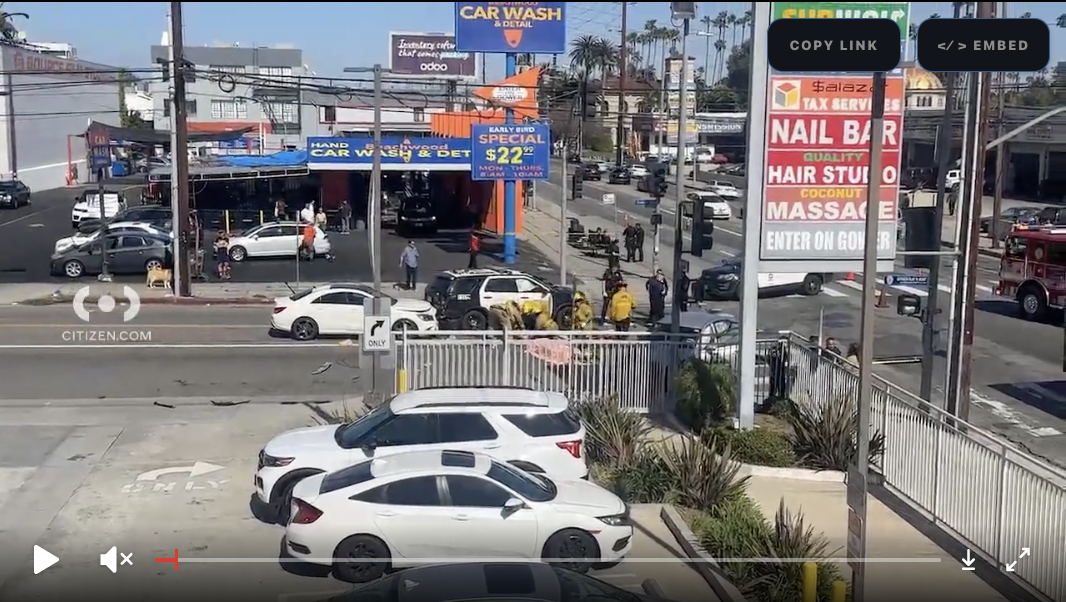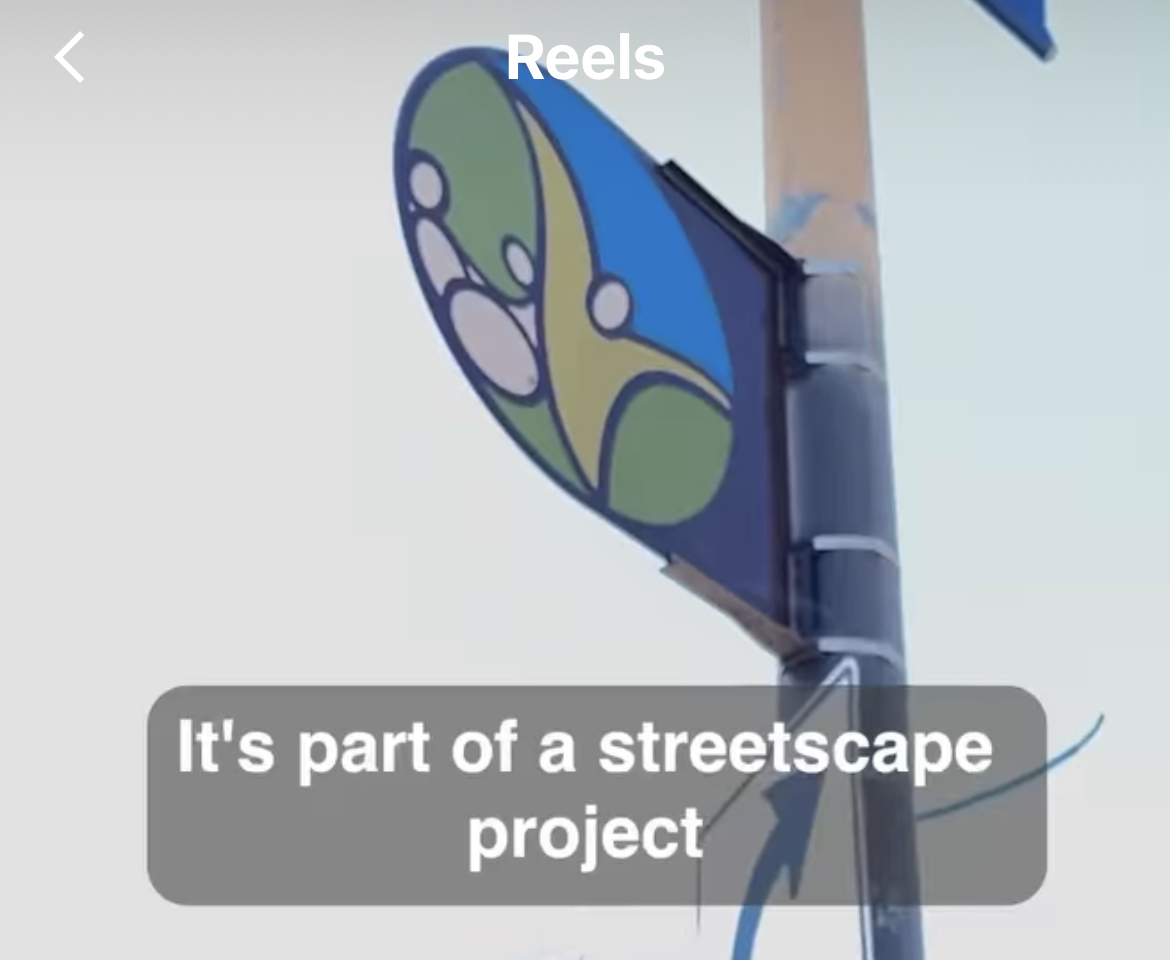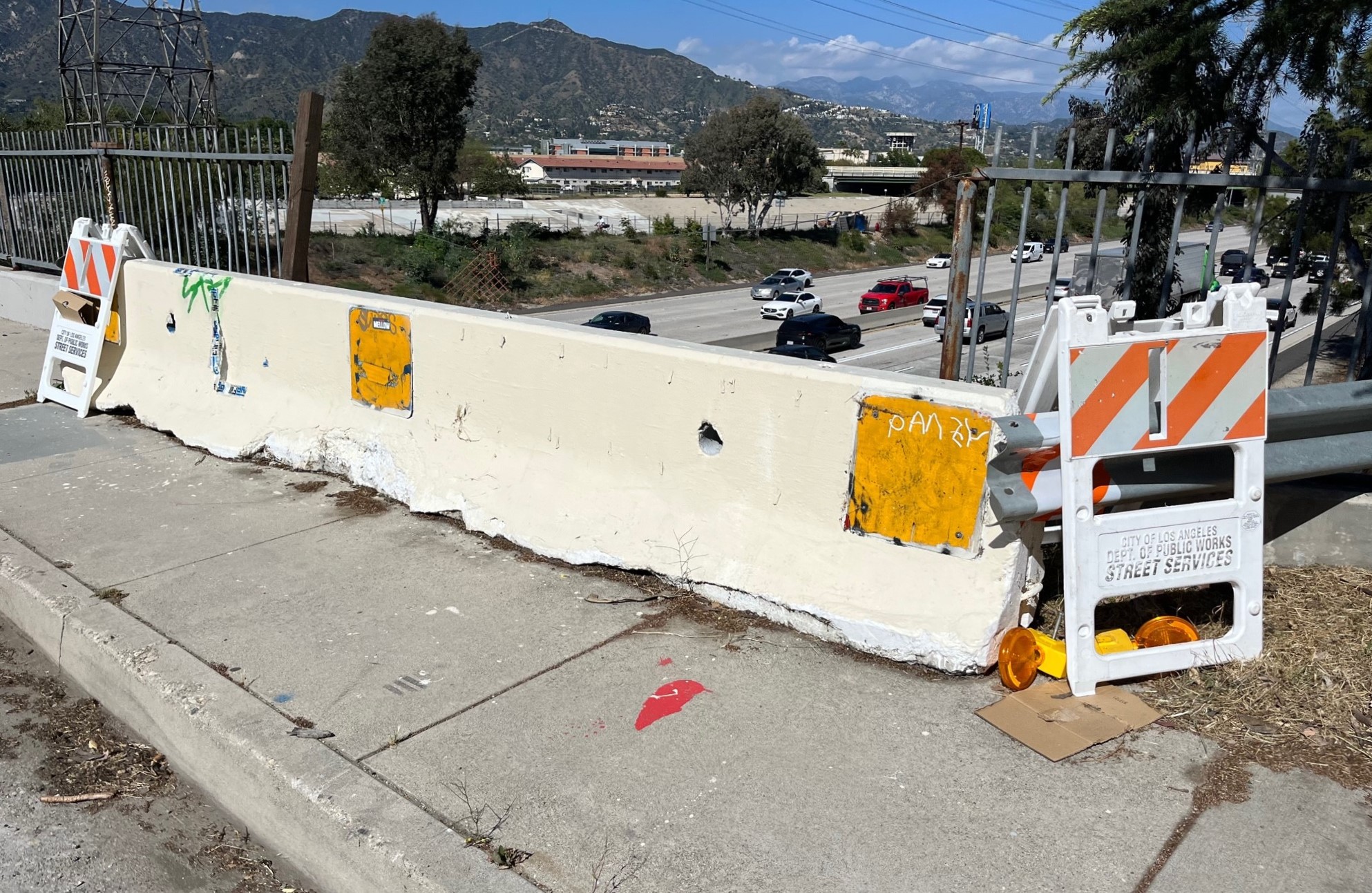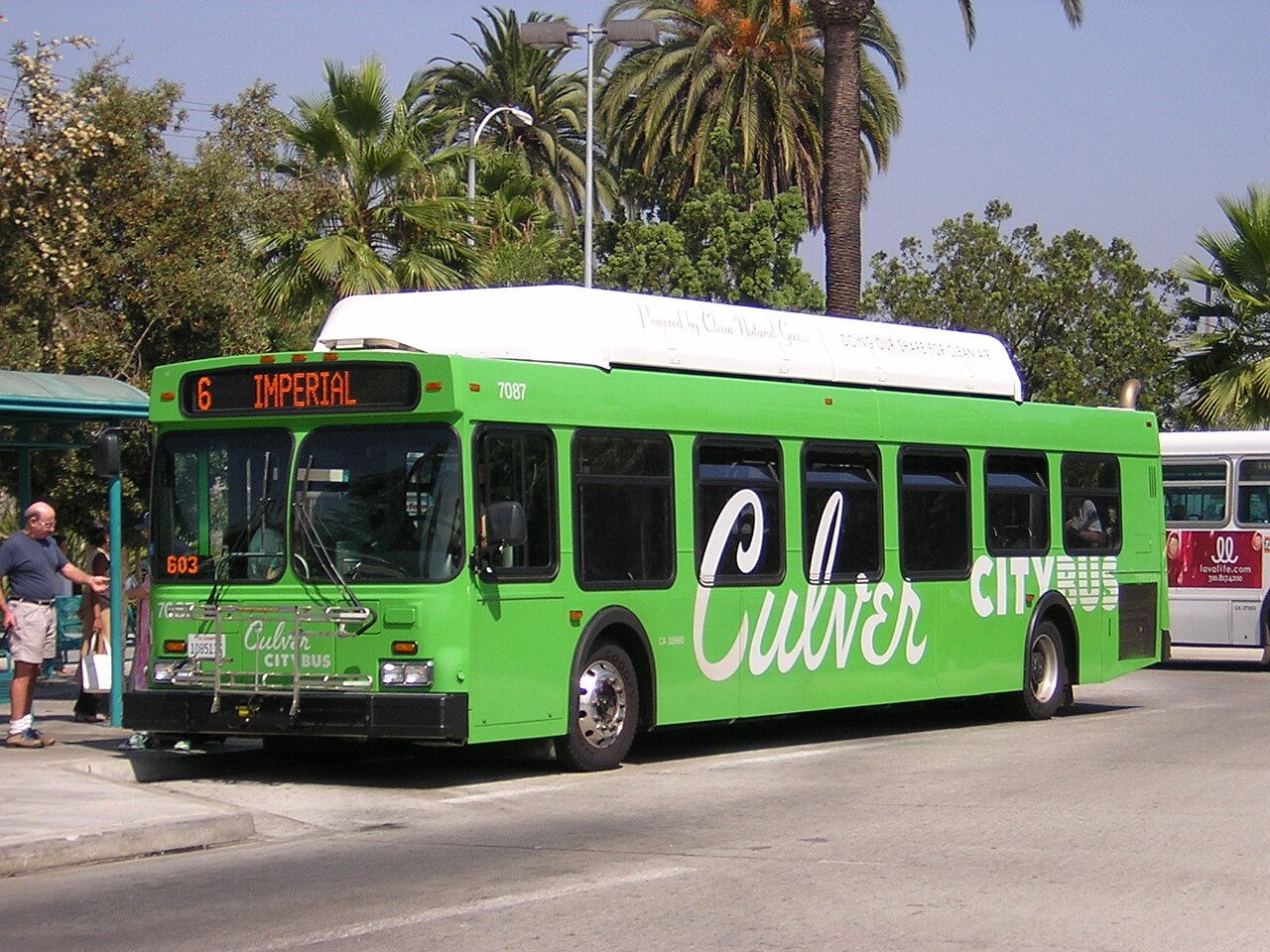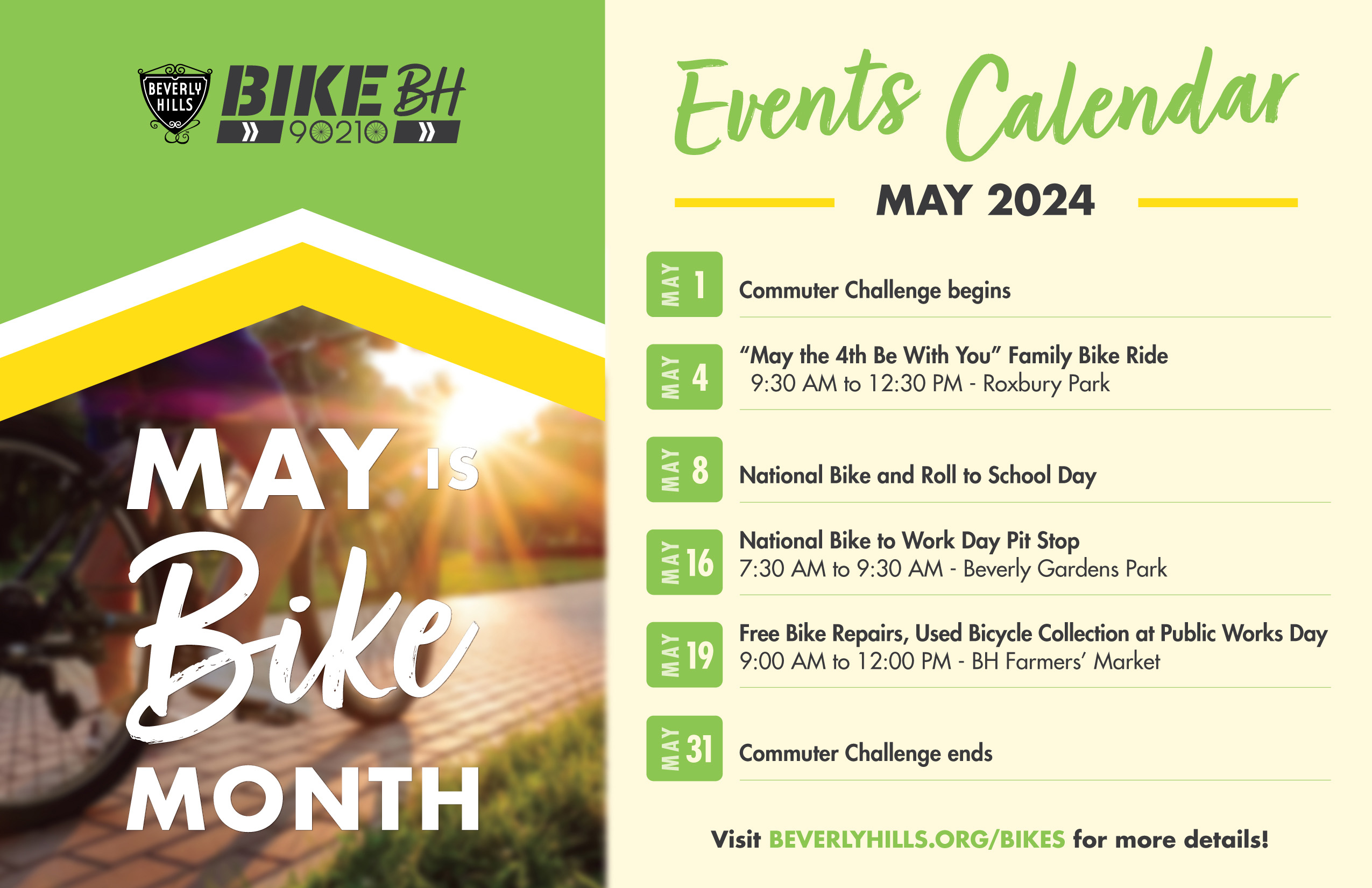Bicycle Coalition Director Eli Akira Kaufman Talks Crises and Opportunities
9:14 AM PDT on July 25, 2019

Photo via LACBC website

The L.A. County Bicycle Coalition is going through big transitions right now. After the departure of the high profile leader Tamika Butler, the nonprofit more or less drifted through a couple years under a short-lived director and an interim director. In January, the coalition hired Eli Akira Kaufman as its new Executive Director. Kaufman immediately faced a serious budget shortfall. He trimmed coalition staff down from nine employees to four, trimmed his own salary, and downsized the coalition's offices. Below is his account of what has been happening at the coalition, where he sees things going, and how interested folks can get involved.
The interview took place earlier this week at Kaufman's downtown L.A. office.
Streetsblog: Tell readers about the event coming up this Saturday - what is it?
Eli Akira Kaufman: It’s called Which Way L.A.-CBC? which is obviously a play on the Warren Olney show, Which Way L.A.?
It’s an opportunity for us to reconnect with the community that we’re trying to serve - the biking community in particular, but also the larger active transportation community. It’s meant to be a listening session. We really want to use this as a safe space for folks to give us their two cents.
The methodology looks like this: we’re not there to affirm or disavow - agree or disagree with - anything that’s said to us. If anything, we'll ask [attendees] to unpack things or dive into more detail so that we can get a better understanding as to where they stand.
Who should come on Saturday?
Everyone. Literally anybody who’s ever been on a bicycle. Anybody who’s ever ridden mass transit, Metro, buses. Anybody who considers themselves a pedestrian. And scooter-ists, as well. And drivers, we want to hear from them, too. It’s an open invitation.
You've been at the bike coalition for about half a year. How has that ride been?
It’s been a roller coaster - some really great highs and some really hard lows.
I started in January and immediately had to make some really hard choices.
I looked at the budget and saw that we were at risk of shuttering without some immediate action taken in terms of cutting our costs. Our primary cost centers - and I hate to say it so technically - - had to do with staff and also facilities. So we reduced staff size and also our office space.
I began that process by going to the board and saying A) you can’t even afford me as the new E.D. and so we need to look at my salary, which we have [Kaufman took a pay cut] and B) we can’t afford the current staff at its size.
With the money we had in the bank and the projects we had in the pipeline, I didn’t see a path forward without either having to close down soon - within months - or having to make some hard choices. We looked at every cost center in the overall annual budget, also in all of our program budgets to see where we could cut costs. We also looked at our revenue side. We have been to trying to be creative about bringing in new types of revenue, more sustainable types of revenue. But we’re up against it.
Without being too rosy about it, what's your optimistic picture of what you see the bike coalition doing in the next year.
First of all, I am a rosy kind of optimistic person. I think that’s why I was attracted to this kind of work, and I think it’s why I got the opportunity - which I am super-grateful for - in spite of the challenges I've encountered. Things didn’t start off the way I had anticipated or hoped.
But I actually feel like we’re at a unique moment in our history. A moment where folks really are looking to navigate the city in healthier, more connected, faster, more fun, more equitable ways than ever before.
I see this in a couple of ways.
I see that in the fact that I am now of an age when I have a lot of friends with teenage children - who are no longer getting drivers licenses because they don’t want to take on the expense of being owned by a car - in terms of car payments, insurance, fueling the car, where to park the car, and all the maintenance that goes along with car ownership.
They’re also tired of being stuck in traffic. Our traffic continues to get worse, no matter how much we expand our freeway system. The bigger they make the pipe, the more we fill it.
There's also the movement that’s happened over the past couple years in the micro-mobility space. New companies like Lime, Bird, Lyft, Spin, Jump, Skip, and I don’t know - the list goes on - are a very clear market reflection of this new instinct toward alternatives to navigate the city. I’m seeing just a huge influx of folks suddenly really taking to it - [folks] that I would never have imagined being outdoors riding on two wheels of any kind.
[Meanwhile], Metro is adding miles to the Metro rail system, with the Purple Line, the Blue Line [Regional Connector] extension going in.
And they’re building the mechanisms right now for how [Metro transportation sales tax] Measure M monies will be distributed for active transportation. Those monies have not been fully released or activated. So that’s yet another thing that I’m encouraged by: the voters spoke for Measure M and Measure A (for park space) and both those measures are going to impact the way we travel around this city. And yet neither of them have been fully released into the ecosystem. Once they are, organizations like LACBC, ActiveSGV, PMJ [People for Mobility Justice], L.A. Walks, and a bunch of our compatriot CBOs [community-based organizations] are going to... have an opportunity to do some really great work because they’ll be properly resourced.
As a parent, as a leader, as a commuter, I can see that we’re right on the edge of this breaking point. The conventional wisdom is becoming 'this system is broken.’ So we need to make radical change to be able to move through our region in a better way. For everyone.
So for those reasons I feel like LACBC is on the cusp of something great.
So that’s why I’m excited - because I feel like the stars have aligned. I think data will show that this was the moment, the tipping point. The point where it wasn’t just early adopters who are starting to see a way [to get around] other than the car. I think that demand for solutions is going to become greater and greater and louder and louder.
Internally, in addition to making the hard choices in terms of staffing and right-sizing the budget, we’ve been attracting some really interesting new people to join our board. I’m not at liberty to share specifics, but there are four new people very close to signing on. Each of them represents a different aspect of L.A. that we have - to date - not been able to fully engage: the entertainment industry, the fundraising sector. [One is] a bankruptcy lawyer who helped other nonprofits who were in similar straits. And a developer who sees density as the future for the city and its livability.
It occurs to me you answered this in an earlier interview, so we might skip it. But typically SBLA ends our interviews asking if you could snap your fingers - wave a magic wand - and change one thing about L.A., what would you change overnight?
I think culture shift is not a snap of the fingers or a magic wand. I think it’s hard work. I think behavioral change requires that we actually slow down and take a look at our health, our connection, our equity, whether or not we’re treating each other well, how we share space.
I think these are really complex, challenging issues that deserve more than a snap of the finger or a wave of a wand. What’s the opposite of [snaps fingers]? It’s like a slow clap, but it needs to be a cadence that allows folks to join in. And over time get engaged with their own health and wellness, and beyond their most immediate need of getting from A to B as quickly as possible.
I guess the thing that, if I could snap my fingers and skip all those steps, it would look like people standing around the water cooler talking about how great their commute was. Saying that they felt that their life was enriched by their commute instead of destroyed by it and the traffic. They’re standing around the water cooler talking about the new cafés and new parks they discovered. They're grateful that they're actually building up their fitness and feeling sharper and more crisp because they were exercising on their way to work. That they were thinking about their taking one more car off the road - their contribution to healthier, cleaner air and water for the region.
If I could snap my fingers and the conversation would shift from how crappy our commutes are. How deadly they are. How much they wear and corrode our sense of wellness [to] how our commute has actually become one of the highlights of our day.
Anything else you’d like to add?
This Saturday's Which Way L.A.-CBC? is meant to be a bit of a reckoning. There’s a moment in the program where I plan to just speak frankly about how we arrived at this moment.
I’m going to own the fact that I don’t think we are justifying our existence as we stand today. We need the help of basically everyone to become a better resource and a better support to the mission that we are fighting for.
I understand that the stakes are high. This is the moment that we need to turn this thing around. It starts with the input and the thoughtfulness of the people that we need to partner with to get this thing done.
The Which Way L.A.-CBC? community forum will take place from 11 a.m to 3 p.m. this Saturday, July 27, at LACBC headquarters at 634 S. Spring Street in downtown Los Angeles.
Stay in touch
Sign up for our free newsletter
More from Streetsblog Los Angeles
LAPD Was Crossing Against Red Light in Crash that Killed Pedestrian and Injured Six in Hollywood
The department says the officers had turned on their lights and sirens just before crossing. Their reasons for doing so remain unknown.
Freeway Drivers Keep Slamming into Bridge Railing in Griffith Park
Drivers keep smashing the Riverside Drive Bridge railing - plus a few other Griffith Park bike/walk updates
This Week In Livable Streets
Bike Month, Hyperion street safety, Eastside rail plans, Pasadena transit, CicloIRVINE, Culver City bus service, and more
